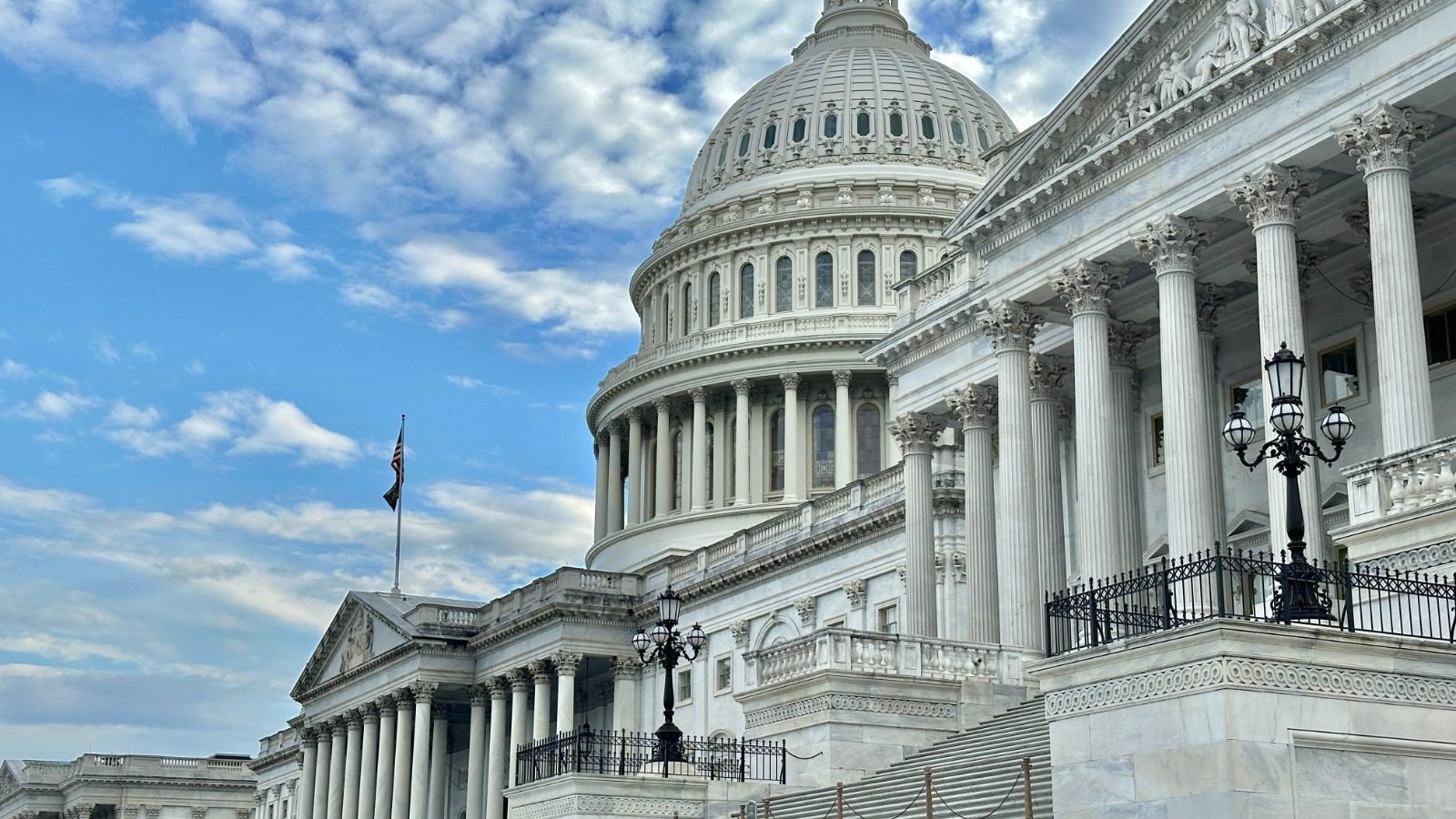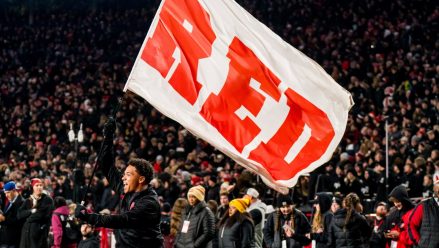A draft letter to the Commodity Futures Trading Commission (CFTC) that questions why the CFTC is allowing sports-related markets, what it is doing to protect consumers, and what guidance the agency is giving operators on how to deal with compliance is currently circulating on Capitol Hill.
“The CFTC must not override state and tribal law allowing sports betting in all 50 states by permitting some companies to categorize their sports betting activities as ‘event contracts,'” the draft, obtained by InGame, reads.
Initiated by Nevada Sen. Catherine Cortez Masto and Utah Sen. John Curtis, the draft contains 11 questions to the CFTC, which oversees prediction markets, some of which have been offering sports event contracts since December 2024. The CFTC has been under fire from segments of the legal gambling industry for months, particularly since prediction market platform Kalshi self-certified to offer sports event contracts ahead of the Super Bowl. For the NFL season through Sept. 27, Kalshi’s sports event contracts expanded to comprise more than 80% of its trades.
The legal sports betting industry argues that Kalshi and other prediction markets are offering sports betting but without the same rigorous consumer protections as state-licensed operators. It also argues that the CFTC is breaking its own rules, which ban markets on “gaming,” the definition of which is disputed.
Meanwhile, state-regulated gambling operators say the contracts violate state and tribal laws in many U.S. jurisdictions. So far, Kalshi, Crypto.com and their partners are the only prediction platforms offering sports event contracts across the U.S., though Polymarket appears on the verge of launch, and PredictIt is live, but with no sports events.
“Some companies are claiming to allow legal sports betting in all fifty states,” reads the draft. “This action — and the CFTC’s unwillingness to stop it — contradicts both the letter and the intent of the law. The Commission cannot sidestep its statutory obligations by declining to enforce the prohibitions that Congress enacted. Doing so undermines the sovereign authority of states and tribes to regulate gambling within their jurisdictions and risks federalizing an area of law that the Supreme Court has held is reserved to the states.”
CFTC rules differ from state, tribal regs
Since the Professional and Amateur Sports Protection Act was overturned in 2018, legal gaming became further entrenched as a states’ rights matter. More than 40 U.S. jurisdictions now have legal sports betting in some form. In those jurisdictions, operators are subject to stringent regulations around responsible gambling, advertising, know-your-customer, finances, and more. State and tribal regulators also have the final say on what bets may be offered. The CFTC requires that Designated Contract Markets (DCMs) adhere to certain core principles, and the rules do not exactly contemplate sports contests. Nor does the CFTC approve or deny sports event contract markets. Rather, platforms self-certify.
Two U.S. sports betting operators have partnered with prediction platforms. Underdog is now the tech provider to Crypto.com, which is live in the U.S. and offering sports event contracts via its own site and via the Underdog app in selected states. FanDuel last month announced a partnership with derivatives marketplace CME. That joint platform is not live yet.
Kalshi is in court with four different states and two groups of Indian tribes. The company sued the states of Maryland, Nevada, and New Jersey after those states sent cease-and-desist letters directly to Kalshi to take down its platform. The Massachusetts attorney general, Wisconsin’s Ho-Chunk Nation, and California’s Blue Lake Rancheria, Chicken Ranch Rancheria of Me-Wuk Indians, and Picayune Rancheria of the Chukchansi Indians have all sued Kalshi.
There also appears to be some question from the Trump Administration about whether or not the CFTC is fit to oversee prediction markets. The Securities Exchange Commission and CFTC are set to hold a joint roundtable to discuss “regulatory harmonization efforts” Monday, and SEC Chairman Paul Atkins has surfaced as a possible CFTC chair candidate.
Gaming, or not?
At issue isn’t just whether or not prediction markets should be allowed to offer sports event contracts, but also if they should be allowed to offer them in legal sports betting jurisdictions without having to follow state or tribal regulations or pay state taxes. Many in Indian Country want the platforms banned from their reservations, where they say prediction markets are encroaching on tribal sovereignty and exclusivity and taking wagering dollars away from tribes. Tribes in many states have exclusivity for gaming under the Indian Gaming Regulatory Act and via compacts with states.
Another key question, which most stakeholders think will be answered in court, is whether or not sports event contracts will ultimately be defined as “gaming.” Kalshi, in its court cases, argues that they are financial tools called “swaps.” No matter the ultimate definition, prediction markets are currently operating across the U.S. — in some jurisdictions that have comprehensive regulations and in others where digital gambling is not legal.
“The continued availability of illegal sport event contracts in all 50 states further reaffirms the need for the CFTC to enforce its own regulations mandated by Congress,” the draft reads. “Moreover, by claiming to be federally regulated by the CFTC, issuers of sports event contracts can avoid myriad state laws, including licensing and background investigations, minimum age requirements, federal anti-money laundering rules, and consumer protections such as addiction warnings and integrity monitoring. These rigorous standards are required by state and tribal licensed entities which the CFTC does not have the authority or the capacity to replicate.”
Questions
Below is the list of questions that senators are considering sending to the CFTC. In the draft, there is currently an Oct. 23 deadline to reply.
- Why is the CFTC not enforcing its clear regulatory mandate promulgated under Regulation 40.11?
- When will the CFTC resume enforcement under Regulation 40.11 to prevent illegal event contracts involving sports gaming activities?
- How many designated contract markets have filed a self-certification with the CFTC for an event contract related to what has historically been sports gaming activities? How is the CFTC advising firms that seek approval of sports gaming activities as event contracts?
- If the CFTC believes that all sports event contracts listed are outside the scope of prohibitions in the Commodity Exchange Act, how is the CFTC advising contract market firms seeking this authority on how they must comply with state laws including states where sports gaming is banned?
- If the CFTC believes that all sports event contracts listed are outside the scope of prohibitions in the Commodity Exchange Act, how is the CFTC advising sportsbook and other contract market firms seeking this authority on how they must comply with state and tribal laws requiring age limits and access controls?
- If the CFTC believes that all event contracts listed are outside the scope of prohibitions in the Commodity Exchange Act, how is the CFTC advising sportsbook and self-styled contract market firms seeking this authority on how they must comply with state and tribal laws regarding time limits, budget setting, trained professional assistance and gambling addiction resources?
- How will the CFTC ensure self-styled sports contract market firms are prohibited from gaming as federal, state, and tribal regulations require?
- How is the CFTC ensuring that athletes, referees, team employees, and others do not manipulate outcomes? How does the CFTC enforce the anti-manipulation requirements of sports event contract marketplaces? How often does the CFTC examine against those requirements?
- How is the CFTC ensuring that sportsbook companies comply with the Federal Wire Act when using geolocation data, anti-money laundering standards such as Know Your Customer, gambling addiction warnings, and other requirements?
- How is the CFTC advising sports contract market firms seeking this authority that they must comply with tribal sovereignty in areas where tribes have exclusive agreements?
- Does the CFTC see sports betting as entertainment or investment products for financial gain?







